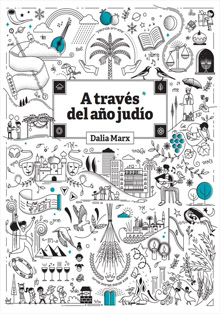Diego López Garrido
Executive Vice-President of Fundación Alternativas
From the very moment Giorgia Meloni won the general elections in Italy, there has been an almost unanimous desire in the European political and media sphere to ignore her far-right roots and attribute to her a Europeanist and Atlanticist profile. In other words, a reassuring message in the face of Meloni’s links, since his youth, to neo-fascist movements. The future “prime minister” of the Italian government herself has taken it upon herself to underline her unquestionable support for the European Union, NATO and sanctions against Vladimir Putin. Not only that. Meloni promises to reach an agreement with Mario Draghi, who is still in office, to ensure a smooth transition to the new legislature and a certain degree of political continuity. In doing so, he is opting for stability, which is so necessary in these critical times.
I think that Meloni is not a suicidal leader and will not think of developing heterodox economic policies, nor will she lower taxes as the British Conservative Party has done, with the destabilising consequences that we are all watching with concern. Neither will it avoid the reforms demanded by Brussels. Among other things, because at stake is the receipt of nearly 200 billion euros from the European Commission, from the Next Generation funds, the largest amount granted by the Union to a member state. It cannot give up when Italy has a public debt of 150% of GDP.
However, other problems are sure to arise, as Meloni, allied with Silvio Berlusconi and Matteo Salvini to have an absolute majority in Parliament, will defend her hallmarks, as she has already done in her first post-election speech. For example, the prevalence of the “interest of the nation”, the Italian version of Donald Trump’s “America first”, whose rhetoric he imitates. The core values of the European Union are clearly expressed in Article 2 of the Treaty on European Union: democracy, the rule of law and respect for human rights, “including the rights of persons belonging to minorities”.
I do not see Brothers of Italy renouncing their xenophobic discourse against immigration, as if this were the source of all the ills afflicting society. In that vein, they have not abjured their commitment not to accept boats with migrants and refugees approaching Italian shores. Meloni’s victory takes away the long-awaited and essential Migration and Asylum Pact that the EU has long needed. It adds difficulties to those that already exist in the face of the position of the ailing Visegrad group, with Viktor Orban as the most visible example of contradiction with European values.
The rule of law is one of the great pillars on which the Europeanist project is based. In my opinion, the Union is going to clash with the future Italian government on this central issue, because Meloni will not be able to get out of a radical ideological discourse to compensate for the fact that he will not be able to do so in economic matters. And there is a relevant aspect of this problem that I would like to highlight. It is the primacy of European law over national law within the scope of the European Union’s powers. A principle created by the Court of Justice of Luxembourg in one of its first rulings. Something that ordinary judges encounter every day, because they are European judges as well as Italian or French or Spanish judges.
The Italian far-right parties that won the elections are visibly challenging this basic principle. In their eagerness to place the supposed “national interest” above the general interests of all Europeans, Meloni and his allies will surely follow in the footsteps of Poland and Hungary. The Commission has opened a case against them under article 7 of the Treaty on European Union for “serious violation” of the Union’s values. It remains to be seen whether Italy wants to continue along this path, defending Italian laws over and above European treaties, regulations and directives. If it does, a confrontation is on the cards.
Meloni enters office at a time of ‘polycrisis’ in Europe, fuelled by the senseless and criminal war unleashed by Russia against Ukraine. But his unilateral nationalist mantra threatens to divert his government from essential intra-European solidarity. I fear that compromises with his partners and the temptation of populist demagogic discourse will put a brake on what the current political scenario demands. Meloni seems to be turning towards the European Union… ‘ma non troppo’.
© This article was originally published in the Vocento Group






